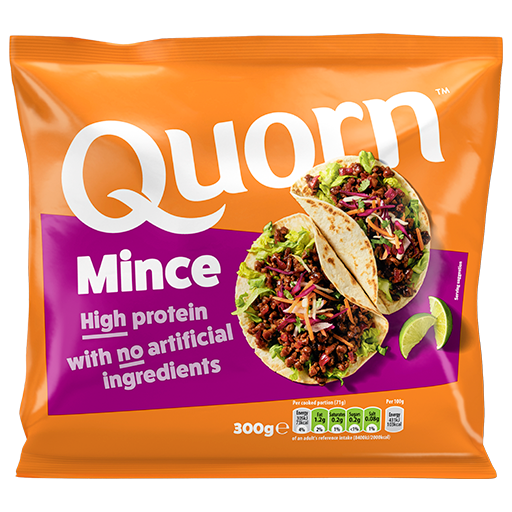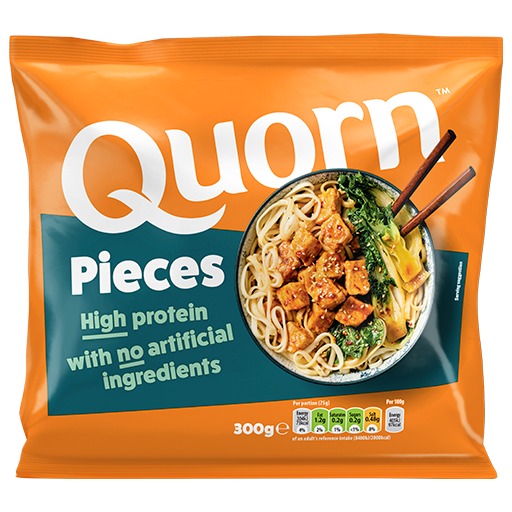Ultra Processed Food: Fact Finding & Myth Busting
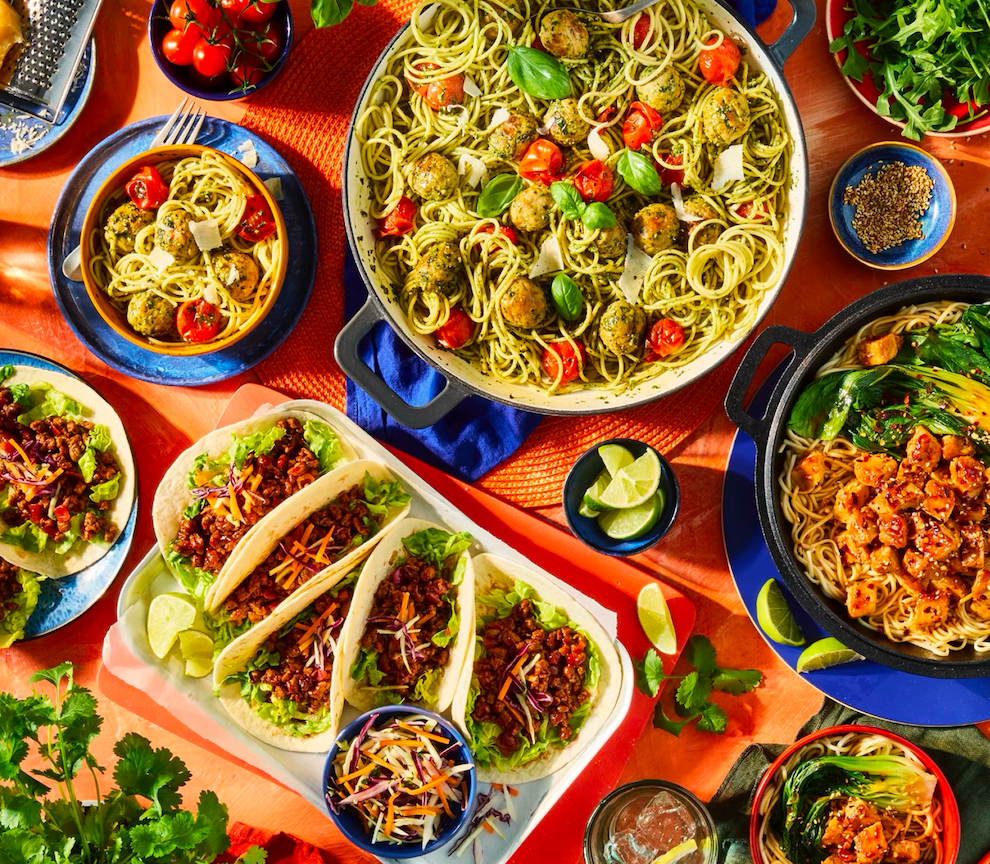
At Quorn, we firmly believe that the nutritional aspects of a food are the most important indicator of whether it is good for you or not. This view aligns with the UK Scientific Advisory Committee on Nutrition and the British Nutrition Foundation.
Classifying foods according to their level of processing is not helpful to the everyday consumer and we're on a mission to reframe the conversation, help consumers cut through the noise and make informed food choices.
We should not overlook the healthfulness of certain foods simply because of how they make their way to our plates. Meat alternatives are not the enemy of a healthy diet, simply because of how they're made. In fact, quite the opposite!
We also cannot ignore the crucial role that processing can play in keeping our food system sustainable and accessible for all.
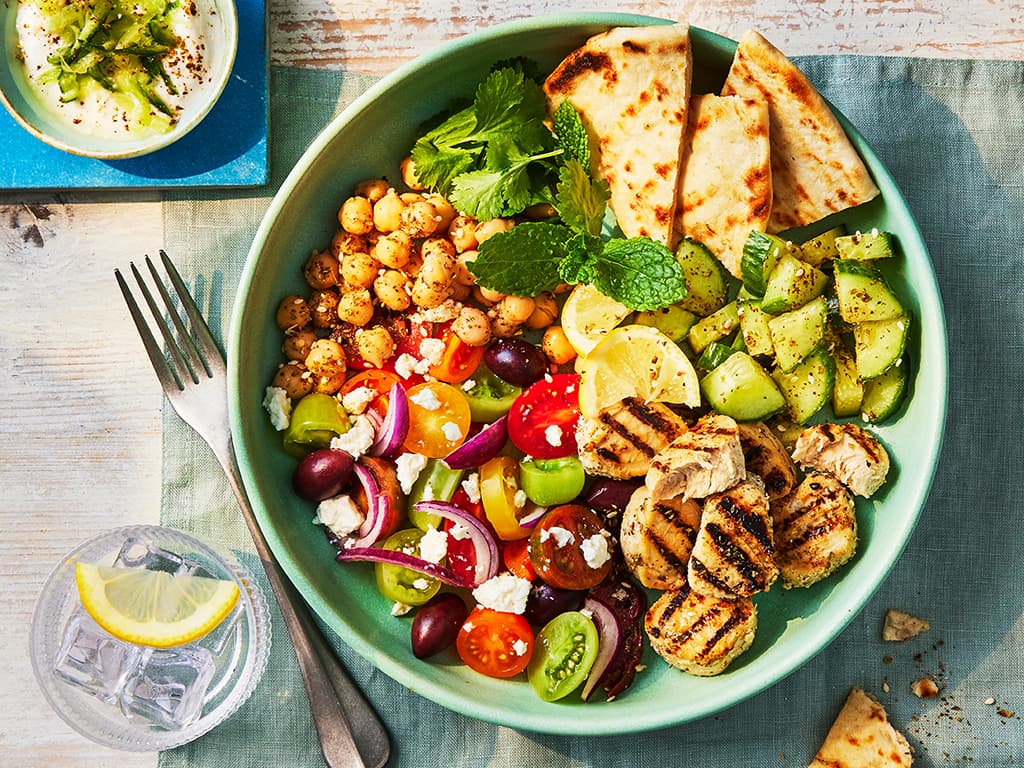
What does "ultra-processed" actually mean?
There's no globally agreed definition of "ultra-processed foods", which is problematic in itself as it fuels more confusion around the topic.
However, the most commonly used food classification system attempts to group foods into four categories of food processing. The most recent definitions and examples are detailed below:
- 1.
Unprocessed/
minimally processed foods Fresh, dried, grounded, chilled, frozen, pasteurised, or fermented staple foods such as fruits, vegetables, pulses, rice, pasta, eggs, meat, fish, or milk.
- 2.
Processed culinary ingredients
Substances usually extracted from foods, not to be consumed by themselves, but for use in preparing staple foods for consumption such ast salt, vegetable oils, butter, and sugar.
- 3.
Processed foods
Canned vegetables with added salt, meat and fish products preserved by salting, cheeses and freshly made unpackaged breads, sugar coated dried fruits, and other products manufactured with the addition of salt, sugar, or other group 2 ingredients.
- 4.
Ultra-processed foods
Food that has undergone intense industrial physical, chemical, or biological processes (e.g., hydrogenation, moulding, extruding, pre-processing by frying) or that contains industrial substances not usually found in domestic kitchens (e.g., maltodextrin, hydrogenated oils, or modified starches), cosmetic additives (e.g., dyes, emulsifiers, artificial sweeteners), or flavouring agents. Examples include carbonated soft drinks, chocolate and energy bars, instant noodles, dehydrated soups, fish and chicken nuggets, powdered or “fortified” meals, and meat substitutes containing substances such as protein isolates or additives that modify colour and flavours.
What are the challenges and limitations using that scale?
Processing and nutritional value – the full picture
How classification can be misleading
What is Quorn mycoprotein?
Why mycoprotein is a complete protein
2. Shahid M (2023) Am J Clin Nutr 118(1):141-150.
What is Quorn and how is it 'processed'?
Quorn's mycoprotein is a nutritious complete protein source* that is made from a naturally occurring fungus called Fusarium venenatum. The fungus is sourced from the soil and cultivated with nutrients made from maize, wheat and essential minerals. We use the process of fermentation – the same process used to create bread, beer and yoghurt.
Fermentation
To grow the organism
RNA reduction
Lowering the ribonucleic acid to ensure it is safe for consumption
Centrifuge
Separates solids and liquids
Chillers
Dispatch
Just 2g of Fusarium venenatum has the potential to feed the whole of the UK its protein requirement for the day, which is just one of the reasons we call it our super protein.
*Provides the nine main essential amino acids;
Coelho MOC et al. Nutr. Rev. 2020;78:486–497; Dunlop M.V et al. Br. J.
Nutr. 2017;118:673–685; Derbyshire EJ Foods 11(5): 647.
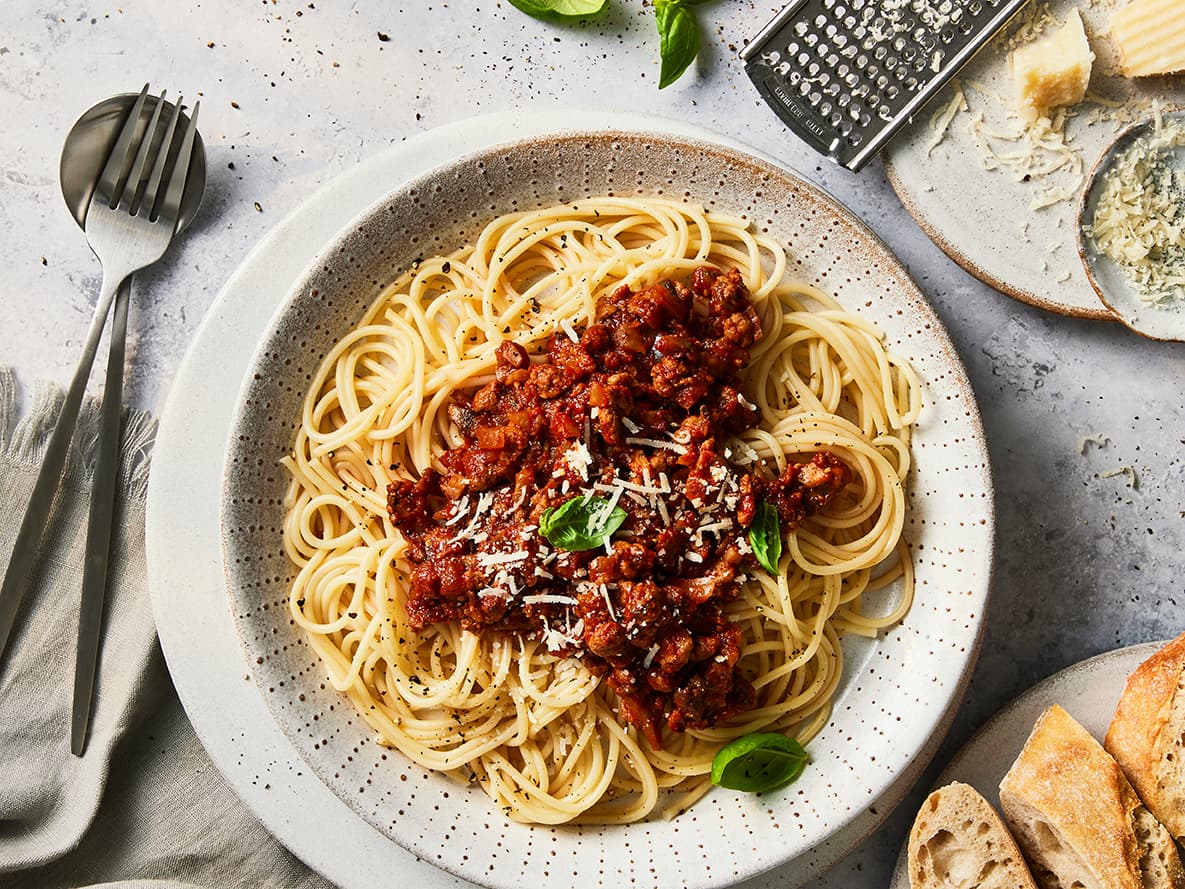
Not only is this a tried and trusted sustainable process, but there's more...
Approx. 90% of the Quorn portfolio is considered as non-HFSS (High Fat, Sugar, and Salt).
Quorn mycoprotein is low in total and saturated fat and contains no cholesterol.2
Quorn mycoprotein is a rich and complete protein.
94% of our products are a source of or high in fibre. Quorn mycoprotein contains 6g of fibre per 100g.
Quorn mycoprotein produces 80% less greenhouse gas emissions than rearing livestock.1
Quorn mycoprotein's land requirement is 60% lower than rearing livestock.2
Quorn mycoprotein's water footprint is 33 times lower than beef.2
Eating 2 Quorn Sausages instead of 2 average pork sausages will remove at least 5g of saturated fat from your diet.
1: It contains less than 3g of fat and less than 1.5g saturated fat per 100g
2: Quorn Footprint Comparison Report (The Carbon Trust, 2023) comparisons were made between producing Quorn mycoprotein and beef, pork and chicken in the UK, Sweden, the Netherlands and Belgium
The comparisons speak for themselves!
Intensively produced
animal protein
Fungi-based
protein
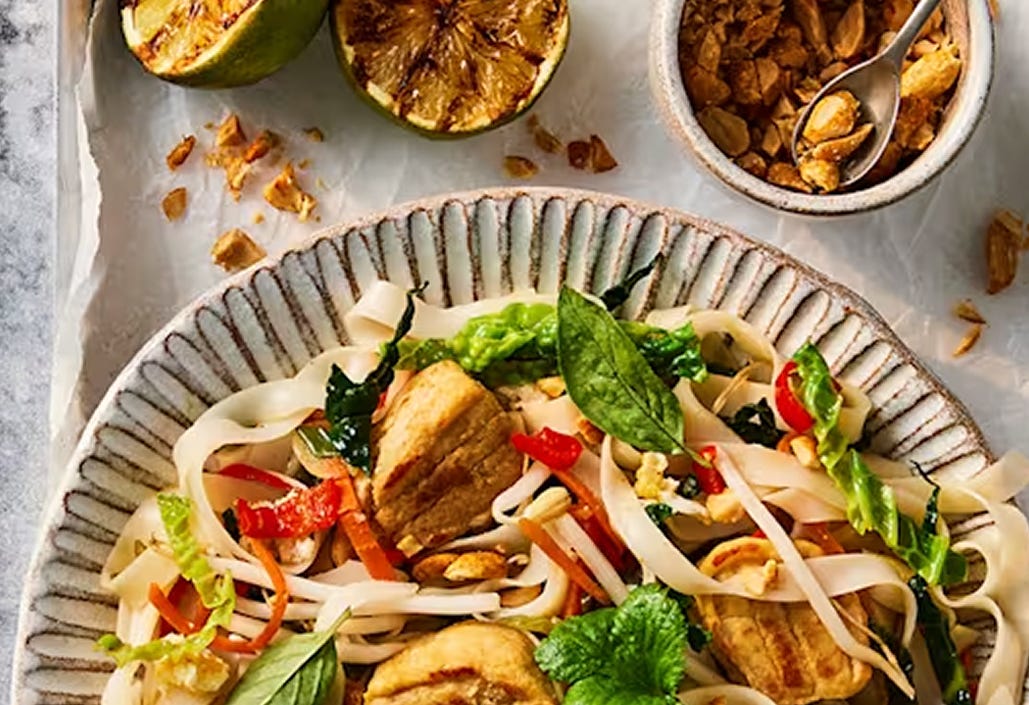
But we know you may not recognise a few things on our ingredients lists
At Quorn, we only use additives where absolutely necessary to carry out specific functions, such as improve texture and preservation.
We only use ingredients in Quorn products which have been deemed safe to eat by the appropriate regulatory bodies.
The UK Food Standards Agency only approves a food additive "if it has been tested and proved to be safe for its intended use; there is a justifiable technological need to use it; and its use does not mislead the consumer".
We understand that not knowing what these things are can add to food uncertainty.
Here are the most common artificial ingredients that you'll see on our packaging and what their purposes are...- 1.
Calcium chloride and calcium acetate
They help us create a meat-like texture. These ingredients are also used in many other popular household staples, such as crumpets and jam.
- 2.
Ammonium carbonate
Similar to baking powder and found in home baking products. This is commonly used as a raising agent and helps give the coating on some of our products a perfectly crispy texture.
- 3.
Potassium sorbate
This is a preservative, which helps to increase the shelf-life on some of our products and avoid wastage. You will also see this in some cheeses, yoghurts and baked goods.
And we're listening!
As a leader in our category, we keep a very close eye on what our consumers want from us. It has become increasingly clear that people are still looking for less artificial ingredients in the products they know and love.
We have removed all artificial ingredients from our core frozen range to create our first 'no artificial ingredients, high in protein' range.
These are the first and only products to carry this claim in the meat free category, and we're not stopping here!
We are on a mission to break down barriers and start new, meaningful conversations around nutrition.
Don't just take our word for it!

Jenny Chapman Churchill Fellow and author of Processing the discourse over plant-based meat:
"Recently, public discourse has focused on the "ultra-processed" nature of plant-based meat, which has led to widespread misunderstanding that plant-based meat products are unsafe and unhealthy. Such concerns are not rooted in science. They discourage consumers from eating safer and more nutritious foods and jeopardise progress towards meeting climate and biodiversity goals."

Rhiannon Lambert Registered Nutritionist and author of The Unprocessed Plate:
"It’s important to recognise that not all processed foods are unhealthy. In the case of meat alternatives, evidence shows they can offer benefits for both health and the environment compared with meat. There is also currently no universal definition of what qualifies as ‘’ultra-processed’,’ which only adds to the confusion for consumers. What really matters is the nutritional quality of a food, and Quorn’s mycoprotein is a great example: it is a complete protein containing all nine essential amino acids. It is also naturally high in fibre, low in saturated fat, and supported by a growing body of scientific research. The decision to remove artificial ingredients from the frozen range gives consumers greater confidence in what they are eating and reinforces that these products are a nutritious alternative. With so much confusion around the term ‘’ultra-processed’, bringing nuance to the conversation is essential if we want people to make informed, balanced choices."
FAQs
See all FAQsResearch into Quorn mycoprotein
Quorn Foods has undertaken a comprehensive research programme over the last 40+ years, working with universities and other academic institutions in the UK and beyond, to understand the effects of mycoprotein consumption on health: many of the studies undertaken have been randomised controlled trials, the gold standard in clinical trials.
Academic research1 has shown that mycoprotein (and those Quorn products tested) may have a beneficial effect on:
- Cholesterol reduction
- The gut microbiome
- Insulin regulation
- Satiety and weight management
University of Exeter: Participants who ate Quorn products, a popular meat alternative made from mycoprotein, experienced a significant 10-percent drop in “bad” LDL cholesterol in comparison to those who consumed red and processed meats2.
A growing body of science also links mycoprotein consumption with muscle/myofibrillar protein synthesis3 and improved cardiometabolic (principally lipid) markers4.
Northumbria University Newcastle: Swapping meat for Quorn’s mycoprotein may promote the growth of beneficial gut bacteria and contribute to lifestyle-based colorectal cancer prevention5.
1. Derbyshire EJ J Nutr Sci 2023 12: e44; 2. Pavis GF Clinical Nutrition 43(3): 649-59; 3. Monteyne AJ J Nutr 153(6): 1680-95; 4. Derbyshire EJ J Nutr Sci 12: e44; 5. Farsi DN Eur J Nutr 62(3): 1479-92.
Is it safe to eat Quorn as part of a healthy diet?
Is Quorn ultra processed?
We understand that there is growing interest in the categorisation of ultra-processed foods, and we keep a close watch on the scientific evidence in this space. However, defining foods based on their level of processing, without any consideration of their nutrition value, unfairly stigmatises many foods that can and should be included as part of a healthy, sustainable diet.
If Quorn is an ultra processed food, then does that mean it must be bad for you?
Do you have plans to remove artificial ingredients from the rest of your range?
As the leader of the category, we’re committed to investing and evolving with consumers and the market. We’re proud of the success so far with our frozen ingredients range and look forward to the challenge of continuing this journey. However, at the moment, we are focusing on our vegetarian ingredients range.





